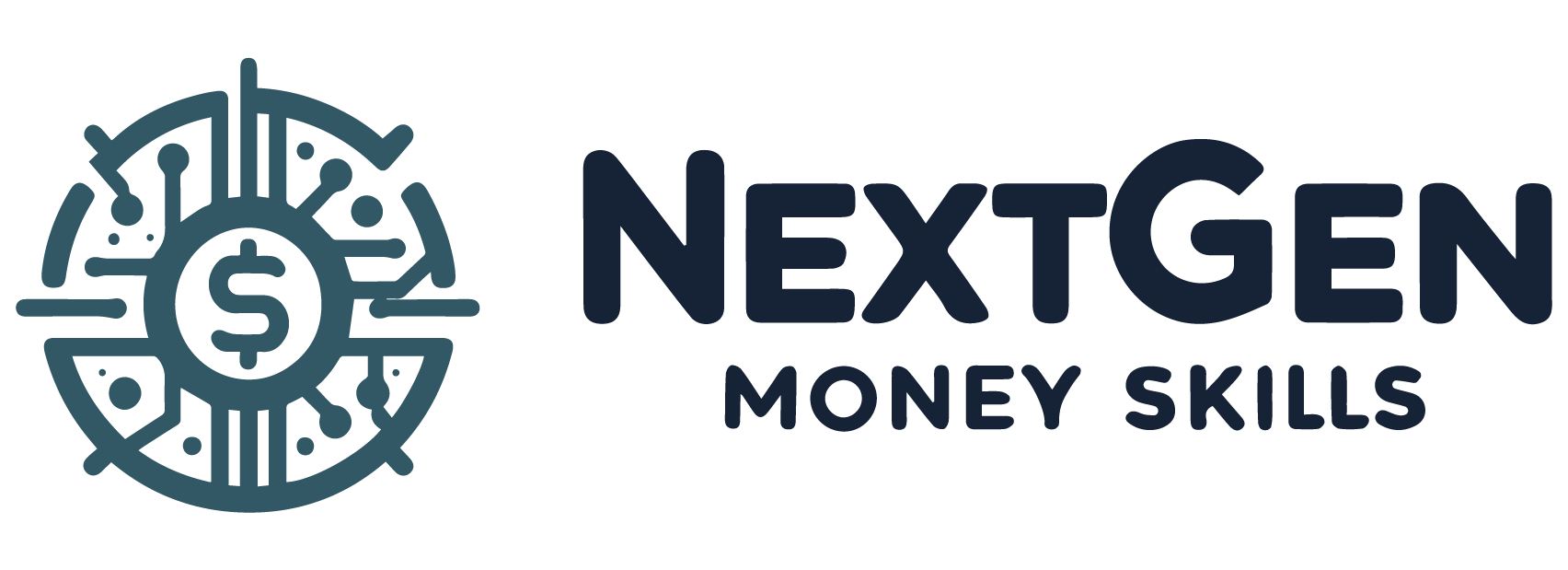Table of Contents
Ever wondered what to do with extra money? When fortunate enough to have extra money, it’s crucial to make wise choices that can secure your financial future. Whether it’s a bonus from work, an inheritance, or savings from budgeting, the right strategy can enhance your financial health. Prioritizing high-interest debt, such as credit card balances or loan debt, can alleviate financial pressure. Additionally, investing in a diverse investment portfolio and opening various investment accounts can provide long-term growth potential.
For those with business loans, using spare cash to accelerate repayments might be a smart move. It can reduce the loan’s lifespan and the total interest paid over time. Ultimately, the path you choose for your extra money should reflect a strategic plan to enhance your financial well-being. Whether it’s bolstering your emergency savings, reducing debt, or growing your retirement nest egg, every step taken should be a calculated move towards financial empowerment and peace of mind.
Beginning With the Basics
Starting with a strong foundation is key when deciding how to allocate extra money. An essential first step is to establish or fortify your emergency fund, ensuring you have a solid financial safety net. This fund acts as a buffer against life’s unpredictable moments, such as job loss or unforeseen medical expenses.
Once your emergency fund is in place, the next step is to look at any high-interest debts that may be burdening your finances. Paying these off can free up additional funds in the future and save you significant amounts in interest payments over time.
Building Your Emergency Fund
An emergency fund is a crucial component of financial stability. It’s the reserve cash you set aside specifically for unexpected expenses, such as sudden repairs or medical emergencies. This fund should ideally cover three to six months’ worth of living expenses, giving you a cushion to rely on without having to incur debt.
Building your emergency fund is a gradual process. It’s about setting aside small amounts regularly until you reach your target. While it may seem daunting at first, even a modest emergency fund can provide a sense of security and prevent the need for high-interest loans during a crisis.
The Importance of Having a Financial Safety Net
A financial safety net, like an emergency fund, is critical for weathering financial storms. Unforeseen events can happen to anyone, and without a safety net, individuals may find themselves relying on high-interest card debt to manage these situations. This can lead to a cycle of debt that’s hard to escape.
Having a financial safety net ensures that when unexpected costs arise, you’re not thrown off course. It can mean the difference between a temporary setback and a long-term financial burden. More than just a pool of money, it’s peace of mind that you can handle life’s surprises without derailing your financial goals.
Moreover, a well-funded emergency reserve can also provide the flexibility to make thoughtful decisions in a crisis, rather than reacting out of financial desperation. It’s a fundamental component of any sound financial plan and a stepping stone to greater financial resilience.
Tackling High-Interest Debt
When you find yourself with extra money, one of the smartest moves you can make is to tackle high-interest debt. Credit cards, auto loans, and other forms of high-interest borrowing can quickly become a financial burden due to compounding interest rates.
Using extra money such as a tax refund to pay down these debts can reduce the total interest paid and shorten the debt repayment period. It’s a proactive step that can lead to significant savings and a more manageable financial situation.
Why Paying Down Debt Can Be a High Return Investment
Allocating extra money to pay off high-interest card debt can be one of the highest return investments you can make. By reducing the principal balance, you’re not just eliminating debt; you’re also decreasing the amount of interest you’ll pay over the life of the debt. In essence, you’re earning a return equal to the interest rate you would have paid.
This approach not only frees up future income for other financial goals but also improves your credit score. A lower debt-to-income ratio is favorable in the eyes of lenders, potentially leading to better terms for any future borrowing needs.
Ultimately, paying down high-interest debt is a strategic move that strengthens your financial position. It’s an investment in your future financial health, providing a solid foundation for growth and stability.

Leveraging Your Savings
When managing extra money, leveraging your savings can help you reach financial goals more quickly. By placing funds into savings vehicles that offer higher returns, you’re putting your money to work for you. This approach can amplify your savings efforts and bring you closer to your financial objectives.
Identifying your financial goals is the first step in deciding how to leverage your savings effectively. Whether you’re saving for a down payment on a home, a child’s education, or a dream vacation, aligning your savings strategy with your goals can help you achieve them in a timely manner.
1. High-Yield Savings Accounts
For those building an emergency fund or saving for short-term goals, high-yield savings accounts offer a safe place to grow your savings. They typically provide higher interest rates than traditional savings accounts, allowing your emergency fund to accumulate more over time.
High-yield savings accounts are particularly beneficial for those who want to maintain easy access to their funds while still earning a competitive return. They serve as an excellent repository for your emergency fund, ensuring that the money is there when you need it most.
The Benefits of Higher Interest Rates on Your Savings
Placing extra money in accounts with higher interest rates can significantly impact your savings over time. The power of compounding interest means that your money grows faster as the interest you earn generates more interest. This can help you reach your financial goals more efficiently.
Higher interest rates on your savings can also serve as an incentive to save more. Watching your balance grow can be motivating, reinforcing good saving habits and making it easier to stick to your financial plan.
In the context of your overall financial strategy, higher interest rates provide an opportunity to diversify your savings approach. While they should not be the sole focus, they are a valuable component of a comprehensive plan to maximize your financial potential and achieve your goals.
2. Certificates of Deposit (CD)
When it comes to managing extra money, Certificates of Deposit, or CDs, offer a reliable option. These financial instruments are like promises, where you agree to leave your cash untouched for a set period in exchange for a guaranteed return. The duration can range from a few months to several years, depending on your financial goals and needs.
CDs are ideal for those who seek security and are not in immediate need of their funds. By locking money in a CD, you protect it from impulsive spending while earning more than a standard savings account would offer. It’s a straightforward approach to grow your spare cash without exposure to market risks.
Locking in Your Savings for a Fixed Return
Certificates of Deposit stand out for their ability to provide a fixed return. When you invest in a CD, the interest rate is set from the start, so you know exactly how much money you’ll receive at the end of the term. This makes CDs a predictable and stress-free investment choice, especially for those new to saving.
Moreover, CDs often offer higher interest rates than traditional savings accounts, making them a more lucrative option for your spare cash. The longer the term you commit to, the higher the interest rate you’re likely to secure. This incentivizes savers to think long-term and supports financial discipline by reducing the temptation to withdraw funds prematurely.
However, it’s important to note that early withdrawal from a CD can come with penalties. Therefore, before committing, ensure that you won’t need access to these funds during the term. This way, you can maximize your earnings without the risk of losing interest due to early withdrawal fees.
3. Money Market Accounts
Money market accounts offer a sweet spot between savings accounts and CDs. They provide higher interest rates than the former, while still offering more flexibility than the latter. This makes money market accounts an attractive choice for individuals with extra cash looking for a balance of accessibility and growth.
These accounts typically come with the ability to write checks and make transfers, which is not possible with CDs. While they may not offer the highest returns available, the blend of convenience and earning potential makes them a smart choice for managing additional funds.
Combining Accessibility with Earning Potential
Money market accounts are known for combining the earning potential of savings instruments with the accessibility of a checking account. This dual benefit allows you to enjoy a higher return on your spare cash without locking it away entirely. As a result, they are well-suited for those who may need occasional access to their funds.
With a money market account, you can earn interest at rates that often surpass regular savings accounts. Additionally, the ability to write a limited number of checks each month provides the convenience of quick access to your cash for unforeseen expenses or investment opportunities that may arise.
It’s worth noting that money market accounts generally require a higher minimum balance compared to traditional savings accounts. Keeping this in mind, they are a great option for people who have accumulated a sizeable amount of extra money and want to maximize their returns while retaining some liquidity.

Investing in Your Future
Investing in your future is a vital step towards long-term financial security. Taking the extra money you’ve saved and putting it towards growth-focused options can pave the way for a more comfortable retirement, a robust investment portfolio, and the financial freedom to pursue your dreams.
Whether it’s through retirement accounts, stock market investments, or real estate investing, each avenue offers unique benefits and risks. The key is to align these options with your financial goals and risk tolerance to build a future-proof financial strategy.
1. Retirement Accounts and Your 401(k) Match
Retirement accounts are the cornerstone of a secure financial future. Among these, the 401(k) plan stands out, especially when employers offer a match contribution. This is essentially free money that can significantly bolster your retirement savings over time.
By contributing enough to get the full employer match, you’re effectively doubling the impact of your savings efforts without additional risk. It’s one of the most straightforward ways to increase your retirement funds, and it’s a benefit that should not be overlooked.
Maximizing Employer Contributions for Retirement
To maximize the benefit of employer contributions in your 401(k), it’s essential to understand the matching formula your company uses. Some employers may offer a dollar-for-dollar match up to a certain percentage of your salary, while others might contribute a smaller amount. Either way, it’s free money that adds up over the years.
Contributing at least enough to capture the full match is a wise financial move. Not only does it amplify your savings, but it also takes advantage of tax-deferral benefits associated with 401(k) contributions. This can lead to substantial tax savings and a more robust retirement fund.
Remember, the earlier you start contributing to your 401(k) and earning that employer match, the more time your money has to grow through compounding interest. Even if retirement seems far off, starting now ensures you’re building a solid foundation for the future.
2. Individual Retirement Accounts (IRA)
Individual Retirement Accounts (IRA) present another avenue for retirement savings. Unlike 401(k)s, which are employer-sponsored, IRAs offer a way to save for retirement on your own terms. There are different types of IRAs, such as Traditional and Roth, each with unique tax implications and rules.
IRAs are ideal for individuals who want to take control of their retirement savings or who may not have access to a 401(k) through their employer. They serve as a critical component in diversifying retirement accounts and ensuring financial stability in later years.
Taking Control of Your Retirement Savings
Individual Retirement Accounts empower you to take control of your retirement savings. With an IRA, you can choose from a wide range of investment options, from stocks and bonds to mutual funds. This freedom allows you to tailor your retirement fund to your specific financial goals and risk tolerance.
Creating streams of passive income is also possible with an IRA. By investing wisely, you can generate income that continues to flow even when you’re not working. Whether it’s through dividend-paying stocks or interest-earning investments, passive income can help sustain your lifestyle in retirement.
Seeking financial advice can also be beneficial when managing an IRA. A financial advisor can provide personalized guidance to optimize your retirement savings strategy. They can help you navigate complex investment decisions and tax considerations, ensuring your retirement fund is on track for the future you envision.
3. Exploring Stock Market Investments
Exploring stock market investments is an engaging way to put your extra money to work. The stock market offers the potential for significant growth, albeit with corresponding risks. By investing in a diversified portfolio, you can participate in the economic growth of various sectors and companies.
While stock market investments can fluctuate, they have historically provided higher returns over the long term compared to other savings options. For those willing to ride out market volatility, the rewards can be substantial, contributing to a robust financial future.
Understanding Stocks, Real Estate, and Gold as Investment Options
When considering investment options for extra money, it’s important to look at the traditional trio: stocks, real estate, and gold. Investing in stocks offers the potential for high returns but comes with the risk of market volatility. Real estate investment, on the other hand, can provide steady income through rent and potential appreciation in property value, though it requires more capital upfront and is influenced by mortgage rates. Gold is seen as a safe haven asset that can act as a hedge against inflation and currency devaluation, but it doesn’t offer the income-producing potential of stocks or real estate.
Mortgage rates play a pivotal role in real estate investments, as they directly affect the cost of borrowing money. When rates are low, it’s cheaper to finance a property, which can lead to higher returns on investment. However, when mortgage rates rise, the cost of owning a property increases, potentially decreasing its attractiveness to investors. It’s crucial to understand how these rates can impact long-term investment returns and the overall cost of a real estate investment.
Each of these investment options has its own set of risks and rewards, and the choice depends on one’s financial goals, risk tolerance, and investment horizon. Stocks offer growth potential, real estate offers tangible assets and potential tax advantages, while gold is a traditional store of value. A balanced approach often includes a mix of these assets, diversifying one’s portfolio and spreading out risk.

Advanced Money Moves
For those looking to make advanced money moves, it’s beneficial to explore options beyond basic savings accounts. This could involve seeking out a reputable publisher and comparison service that can provide insights into various financial products, including those with competitive interest rates or advantageous terms. Always check the NMLS ID and the NMLS consumer access page to verify the legitimacy of financial institutions and the products they offer.
Advanced strategies may also include seeking personalized financial planning and investment advice. This can help investors make informed decisions about where to allocate extra funds, ensuring that they’re aligned with long-term financial goals and adequately prepared for emergency expenses. A comprehensive financial plan takes into account an individual’s unique financial situation and provides a roadmap for achieving financial security.
Consider Diverse Investment Opportunities
Diversification is key when considering investment opportunities for extra funds. An emergency fund should be the foundation, providing a safety net for unexpected costs. Beyond this, mutual funds offer a way to invest in a diversified portfolio of stocks or bonds, managed by professionals. Individual stocks also allow investors to own a piece of a company, with the potential for significant growth. However, they require more research and involve higher risk.
When planning how to best utilize extra funds, it’s important to consider a mix of investments. The right balance will depend on personal financial goals and risk tolerance. Mutual funds can offer diversification and professional management, while individual stocks can provide the opportunity for more direct control over one’s investments. Both options should be considered in the context of an overall investment strategy that balances potential returns with acceptable levels of risk.
The Role of Short-Term Bonds and Treasury Bills
Short-term bonds and Treasury bills represent investment options for those seeking to preserve capital while earning a modest return. They are less risky than stocks and can be a good choice for the conservative portion of an investment portfolio. Money market accounts, which offer liquidity and interest earnings, can also be a safe place to park funds while deciding on longer-term investment strategies.
Money market accounts are particularly useful for investors looking to balance accessibility with earning potential. They typically offer higher interest rates than traditional savings accounts, while still providing the ability to withdraw funds without significant penalties. This makes them an excellent option for holding funds that may be needed in the near future or as part of an emergency fund.
For those with a lower risk tolerance, short-term bonds and Treasury bills can provide a fixed return over a shorter period, often with less volatility than the stock market. While the returns may not be as high as those from riskier investments, they offer stability and capital preservation, making them a valuable part of a diversified investment portfolio.
Seeking Professional Financial Planning
Securing professional financial planning services is a wise move for individuals who want to navigate the complexities of the financial landscape with expertise. A financial planner can provide guidance on how to build and maintain an emergency fund, pay off high-interest debt, and make strategic investment decisions aligned with one’s financial goals.
Professional financial advisors are equipped to offer personalized advice that takes into account an individual’s unique circumstances. By leveraging their knowledge and experience, investors can avoid common pitfalls and make more informed decisions about how to manage their extra money efficiently and effectively.
How Expert Advice Can Tailor Your Financial Strategy
Expert financial advisors possess the skills to tailor a financial strategy that suits an individual’s specific needs. They can help in establishing a solid emergency fund, which is crucial for financial stability. This fund acts as a buffer against unexpected expenses, ensuring that individuals are not forced to incur high-interest debt in times of need.
Advisors can also guide clients through the process of paying down high-interest debt, which can be a strategic financial move with a high return on investment. By reducing debt, individuals can free up more money for savings and investments, leading to improved financial health in the long term. Expert advice can thus be instrumental in creating a debt repayment plan that aligns with one’s financial capabilities.
Moreover, financial advisors can facilitate complex investment decisions, helping individuals to understand various investment vehicles and how they fit into their overall financial picture. Whether it’s investing in the stock market, real estate, or other assets, advisors can provide insights that enable investors to select options that best match their risk tolerance and investment goals.

The Intelligent Approach to Extra Funds
Handling extra funds intelligently starts with ensuring that an emergency fund is in place. This fund acts as a financial safety net, protecting against unexpected life events that could otherwise derail one’s financial stability. Once this foundation is secured, individuals can look to alternative investments to diversify their portfolios and potentially enhance returns.
For those with health concerns or high medical expenses, health savings accounts (HSAs) can be a tax-efficient way to save for healthcare costs. Contributions to HSAs are tax-deductible, and funds can grow tax-free, provided they are used for qualified medical expenses. This specialized savings tool not only provides a method for managing healthcare costs but also adds another layer to an individual’s investment strategy.
Aligning Your Financial Goals with Investment Choices
Aligning investment choices with one’s money goals is essential for financial success. Whether the goal is to save for retirement, buy a home, or fund a child’s education, each investment decision should be made with these objectives in mind. This strategic alignment ensures that every dollar is working towards achieving the desired financial outcomes.
Money goals vary greatly between individuals, so it’s important to assess personal priorities and time horizons. For instance, saving for retirement may warrant a different investment approach compared to saving for a short-term goal like a vacation. Considering factors such as risk tolerance and the need for liquidity can help in choosing the right investments that support one’s money goals.
Navigating Financial Decisions with Confidence
To navigate financial decisions with confidence, one must be informed, disciplined, and proactive. Staying educated on financial matters, such as understanding the basics of investing and the importance of diversification, empowers individuals to make choices that are in their best interest. Confidence also comes from having a clear financial plan that outlines steps towards achieving financial goals.
Finally, being proactive about financial decisions means regularly reviewing and adjusting one’s financial plan to adapt to life changes or economic shifts. It also involves seeking professional advice when necessary to ensure that one’s financial strategy remains sound. With these practices, individuals can confidently handle their financial affairs and work towards a secure financial future.
Final Thoughts on What to Do With Extra Money
As we wrap up our exploration of managing extra funds, it’s clear that financial empowerment is not a destination, but a journey. It involves continuous learning and adapting to new financial opportunities and challenges. Embracing a holistic view of your financial health is paramount to making informed decisions that affect your fiscal well-being. From the emergency fund that offers a cushion against life’s unforeseen events to the calculated risks of stock market investments, each aspect of your finance requires attention and balance.
Ultimately, financial empowerment is about taking control of your economic destiny. It means staying informed, seeking professional advice when necessary, and being proactive about your financial choices. By doing so, you not only secure your own future but also set a foundation for generations to come, ensuring that your hard-earned money continues to work for you and your loved ones long after you’ve laid the groundwork.




